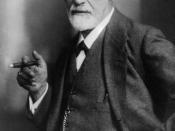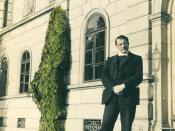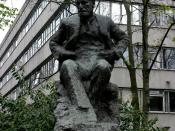In the field of psychology, Sigmund Freud, Alfred Adler, and Carl Jung, developed three distinct theories of personality that to this day, continue to be the foundations on which all modern psychological theories are built. All three of these remarkable men knew and worked with each other. When Adler and Jung praised Freud's book on dream interpretation, they were invited to join Freud's circle of peers, who met weekly at his home in Vienna, Austria (Engler, 2006). At these meetings they discussed new and groundbreaking aspects of psychopathology (Comer, 2008).
Freud, Adler, and Jung are unequivocally the most influential figures in modern psychology (Comer, 2008). Freud's concept of the id, the ego, and the superego, are the underlying factors that began all three schools of thought and that provide the foundations of modern psychology (Engler, 2006).
Freud believed that the id had no contact with reality and worked on the pleasure principle and hedonistic wants, with no morality involved.
The ego develops as children experience the demands and constraints of reality. It uses reasoning to make decisions. The superego is concerned with right and wrong, it is the moral compass, the conscience in each individual (Comer, 2008). Freud believed that people are unaware of the most important personality processes. Like an iceberg, only the small portion of the conscious mind is accessible and above the water. The preconscious, just out of reach, and the subconscious, deeply repressed, is below the water completely. These are the reason for most problems with behavior and the personality, according to Freud (Nystul, 2006).
Freud also theorized that the personality was formed by early childhood experiences, called psychosexual stages (Engler, 2006). If a child's basic needs are not being met during one of these stages, the child may become "fixated" or stuck in that stage.


